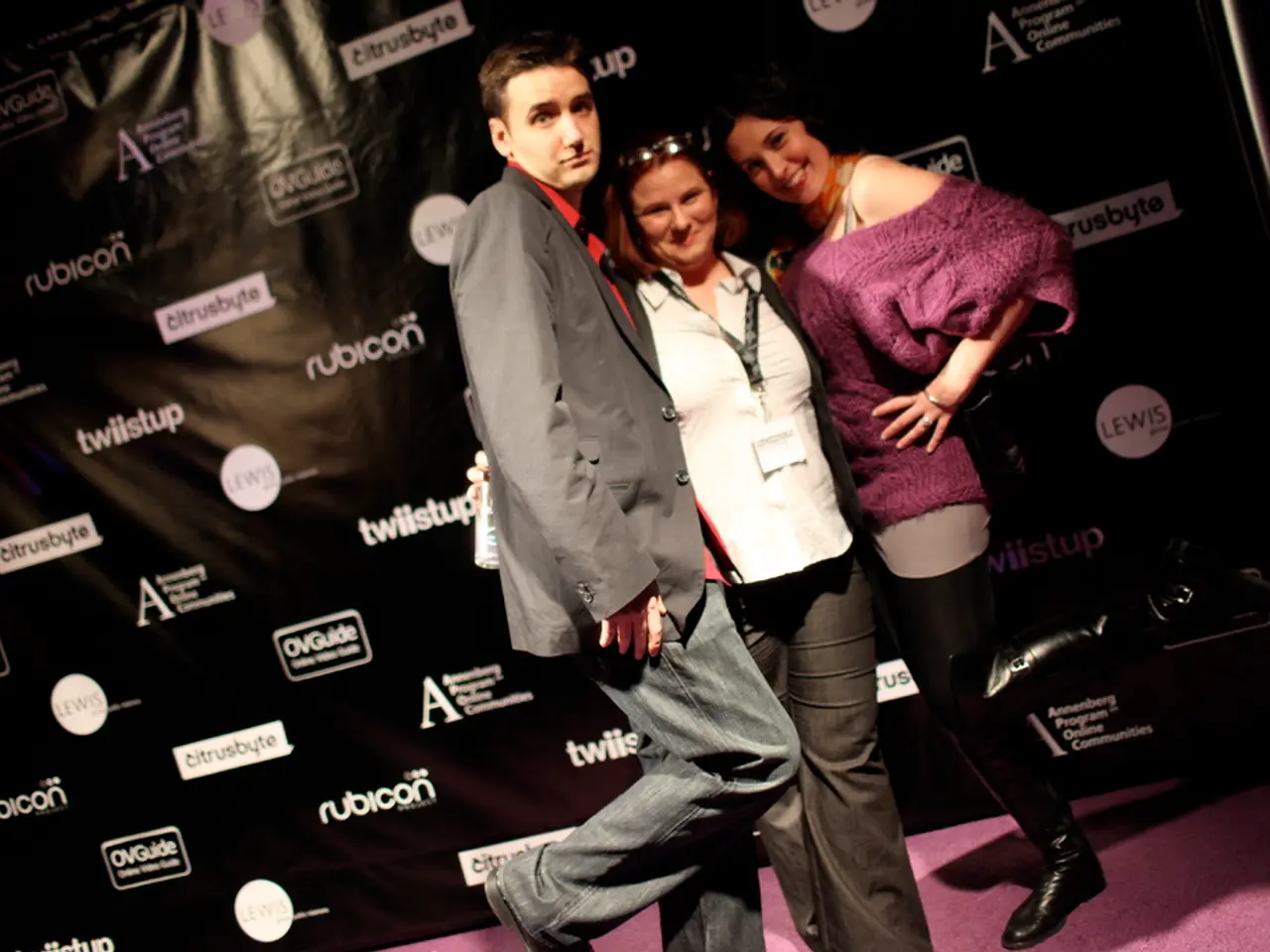Denim Duel: A Gap Between Brand Narratives as Beyoncé and Sydney Sweeney Star in Opposing Advertisements
In the realm of fashion advertising, two campaigns have recently captured the attention of audiences and critics alike - Beyoncé's Levi's campaign and Sydney Sweeney's American Eagle campaign. While the former has been widely celebrated as a cultural homage and a bold reimagining of denim fashion, the latter has sparked significant controversy and backlash.
Beyoncé's Levi's campaign, titled 'Reimagine', was released last year and featured high-gloss visuals, archival throwbacks, and a reimagined '80s laundrette theme. Inspired by Nick Kamen's 1985 commercial, the campaign aimed to present a vision of female empowerment. The campaign was a masterclass in updating a cultural touchstone with precision and purpose, receiving largely positive reception for its artistic and iconic messaging.
In contrast, Sydney Sweeney’s American Eagle campaign, launched a few months after Beyoncé's Levi's campaign, opened with a joke about Sweeney's "great genes" that was interpreted as evoking eugenics rhetoric and idealizing white beauty standards. Critics have accused the campaign of having an uncanny resemblance to white supremacist dog whistles. Despite a brief rise in American Eagle's stock following the release of the campaign, the controversy has caused significant damage to the brand's reputation.
This divergence illustrates a generational shift in marketing interpretation and reception. Beyoncé’s campaign, aligned with a narrative of empowerment and cultural celebration, resonates more positively with contemporary audiences who value representation and artistic storytelling. Meanwhile, Sweeney’s campaign was read through the lens of heightened social and political awareness prevalent in current discourse, reflecting greater sensitivity to historical and racial implications even in seemingly benign marketing messages.
The episode further suggests that marketing now must navigate amplified social media scrutiny and polarized cultural contexts, where generational and ideological divides shape whether a campaign is embraced or critiqued.
Here's a comparison of the two campaigns:
| Aspect | Beyoncé's Levi's Campaign | Sydney Sweeney’s American Eagle Campaign | |------------------------------|------------------------------------------------|--------------------------------------------------| | Reception | Celebrated as cultural homage and empowerment | Controversial, with accusations of racist undertones | | Interpretation | Artistic reinvention, female-centered narrative | Viewed as invoking eugenics and racial messaging | | Public/Media Reaction | Mostly positive, sparking fan theories | Mixed to negative, sparking political backlash | | Marketing Message | Empowerment, cultural legacy, reinvention | Genetics-themed, provocative but misunderstood | | Generational Marketing Insight | Resonates with contemporary cultural values | Demonstrates risk of polarizing interpretations |
In summary, the success of a marketing campaign today depends not only on its design and message but also on its ability to resonate with contemporary cultural values and navigate the complexities of social and political sensitivities.
[1] Cosmopolitan, The Guardian, and The Daily Beast have called out American Eagle's jeans ad for its controversial nature. [2] Some Reddit threads and Twitter corners criticized Beyonce's Levi's campaign for overexposure or excessive sensuality. [3] The Sydney Sweeney jeans ad seems to be caught in a tonal gap, too clever for its own good, yet not clever enough to dodge historical subtext and misinterpretation. [4] Whether or not American Eagle's campaign was intentionally racist is unclear, but the perception of racism was already established, causing damage to the brand's reputation. [5] The Levi's campaign has seen a $1.4 billion increase in revenue and organic growth of around 9%.
[6] The layout of both campaigns showcases a 3D design, with a focus on visuals and art that is characteristic of contemporary UX and UI designs.
[7] The creative direction of Beyoncé's Levi's campaign was influenced by pop-culture, lifestyle, fashion-and-beauty, and entertainment, integrating her branding identity.
[8] In contrast, Sydney Sweeney’s American Eagle campaign seemed to strive for an edgy aesthetic, using color and typography to create an impact.
[9] However, the idyllic portrayal of White beauty standards, as demonstrated in the logo and combination of elements, may have unintentionally stirred up controversial discussions around race and representation.








